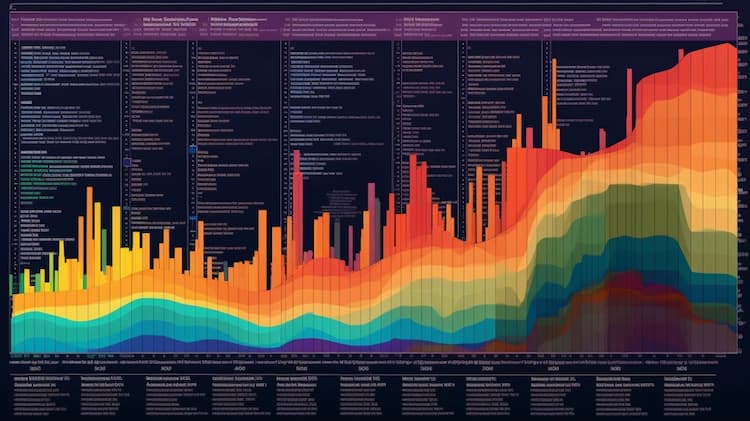
What Is LQD?
In the world of finance, exchange-traded funds (ETFs) and other financial instruments play a crucial role in investment strategies. One such ETF is LQD, which has gained popularity among investors. In this article, we will explore what LQD is, answer some frequently asked questions, and provide valuable insights into this financial instrument.
Understanding LQD ETF
LQD, which stands for iShares iBoxx Investment Grade Corporate Bond ETF, is an ETF that focuses on investment-grade corporate bonds. It is designed to provide investors with exposure to a diversified portfolio of corporate bonds issued by reputable companies. LQD aims to track the performance of the iBoxx USD Liquid Investment Grade Index, which includes fixed-rate, investment-grade corporate bonds with at least one year remaining until maturity.
LQD is considered a popular choice for investors seeking fixed-income exposure as it offers a convenient and cost-effective way to gain access to a broad range of investment-grade corporate bonds. It provides diversification across various industries and companies, helping to mitigate risk. LQD is traded on stock exchanges, making it easily accessible for investors.
To learn more about LQD, you can visit the official iShares website: Link to iShares LQD ETF
Please note: We are not providing any investment advisory services.
Commonly Asked Questions about LQD ETF
What is the expense ratio of LQD?
The expense ratio of an ETF represents the annual fee charged by the fund provider for managing the ETF. As of Source: iShares LQD ETF, the expense ratio for LQD is 0.15%. It is important to consider the expense ratio when evaluating the cost-effectiveness of an ETF.
How does LQD perform compared to other bond ETFs?
LQD's performance can be evaluated by comparing it to other bond ETFs and benchmark indices. The historical performance of LQD can be found on the iShares website, where you can analyze its returns, volatility, and other metrics. However, past performance is not indicative of future results, and it's essential to conduct thorough research before making investment decisions.
 LQD overlap What Is LQD?
LQD overlap What Is LQD?
Benefits and Risks of Investing in LQD
Benefits of Investing in LQD:
Diversification: LQD offers exposure to a wide range of investment-grade corporate bonds, reducing the risk associated with investing in individual bonds.
Liquidity: Being an ETF, LQD can be bought and sold on stock exchanges, providing liquidity and flexibility to investors.
Income Generation: LQD pays periodic interest based on the bonds held in its portfolio, making it potentially attractive for income-focused investors.
Risks of Investing in LQD:
Interest Rate Risk: LQD's performance is influenced by changes in interest rates. When interest rates rise, bond prices tend to fall, which can impact the value of LQD.
Credit Risk: Although LQD focuses on investment-grade corporate bonds, there is still the risk of default by the issuers. Credit ratings and creditworthiness of the underlying bonds should be considered.
For a comprehensive understanding of the benefits and risks associated with LQD, it is advisable to review the prospectus and consult with a financial advisor.
How to Invest in LQD
Investing in LQD is relatively straightforward. Here are the steps to invest in LQD:
Choose a brokerage account: Select a brokerage firm that offers access to ETFs and provides a user-friendly platform for trading.
Fund your account: Deposit the desired amount of funds into your brokerage account.
Search for LQD: Use the ticker symbol "LQD" to search for the iShares iBoxx Investment Grade Corporate Bond ETF.
Place an order: Determine the number of shares you want to purchase and place an order through your brokerage account.
Monitor your investment: Keep track of LQD's performance, review any news or updates related to the ETF, and make adjustments to your investment strategy as needed.
In conclusion, LQD (iShares iBoxx $ Investment Grade Corporate Bond ETF) offers investors an attractive opportunity to gain exposure to the investment-grade corporate bond market. This ETF provides a diversified portfolio of high-quality corporate bonds, allowing investors to access the potential benefits of fixed income investments.
By investing in LQD, investors can benefit from the stability and income generation potential of investment-grade corporate bonds. These bonds are issued by companies with strong credit ratings, indicating a lower risk of default. The ETF's broad diversification across various sectors and issuers helps mitigate individual credit risk and provides a more balanced exposure to the corporate bond market.
One of the key advantages of LQD is its liquidity. Being an ETF, LQD can be easily bought and sold on the stock exchange, offering investors flexibility and the ability to enter or exit their positions efficiently. This liquidity is particularly important for investors who value the ability to quickly adjust their bond holdings in response to market conditions or changing investment objectives.
However, it's important to consider the risks associated with investing in LQD. While investment-grade corporate bonds generally carry lower default risk compared to lower-rated bonds, they are still subject to credit risk. Changes in the creditworthiness of the underlying companies or shifts in the broader economic landscape can impact the value and performance of LQD.
Interest rate risk is another factor to consider. Bond prices have an inverse relationship with interest rates. When interest rates rise, bond prices tend to fall, potentially affecting the value of LQD. Therefore, investors should be mindful of the interest rate environment and its potential impact on the performance of LQD.
Additionally, it's essential for investors to assess their investment objectives, risk tolerance, and time horizon before considering an investment in LQD or any other bond ETF. Consulting with a financial advisor can provide personalized guidance based on individual circumstances and help make informed investment decisions.
Overall, LQD can be a valuable addition to a well-diversified investment portfolio, offering the potential for stable income and exposure to investment-grade corporate bonds. However, investors should carefully evaluate the risks and conduct thorough research before making any investment decisions.
Disclaimer: This article is for informational purposes only and does not constitute investment advice. We are not providing any investment advisory services.
Source 1: LQD issuer website Source 2: Reuters article about LQD
LQD quote and analysis
Discover the top holdings, correlations, and overlaps of ETFs using our visualization tool.
Our app allows you to build and track your portfolio.
To learn more about the LQD iShares iBoxx $ Investment Grade Corporate Bond ETF, access our dedicated page now.
FAQ
What is LQD?
LQD is the ticker symbol for the iShares iBoxx $ Investment Grade Corporate Bond ETF. It represents an exchange-traded fund that focuses on investment-grade corporate bonds.
What is LQD ETF?
LQD ETF is an exchange-traded fund that holds a portfolio of investment-grade corporate bonds. It aims to track the performance of the iBoxx $ Liquid Investment Grade Index, providing investors with exposure to a diversified basket of high-quality corporate bonds.
What is LQD stock?
LQD is an ETF (exchange-traded fund), not a stock itself. It represents a fund that holds a diversified portfolio of investment-grade corporate bonds.
Is LQD commission-free?
Whether LQD is commission-free or not depends on the specific brokerage platform you use for trading. Some brokers may offer commission-free trading for certain ETFs, including LQD, while others may charge a commission. It is advisable to check with your broker or trading platform for their specific commission structure.
What does LQD stand for?
LQD is the ticker symbol for the iShares iBoxx $ Investment Grade Corporate Bond ETF. The acronym LQD itself does not have a specific meaning beyond representing the ETF's identifier in the financial markets.



